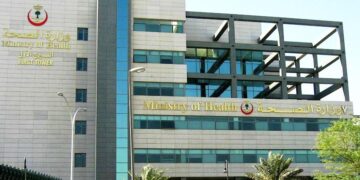Qara, a startup specializing in supply chain technology, has successfully raised $2.6 million in funding, led by key investors. This investment will support Qara’s expansion into the Kingdom of Saudi Arabia (KSA), facilitated by the National Technology Development Program’s Relocate Initiative, which provides incentives and support for integration into KSA’s tech sector.
Qara offers a comprehensive digital platform that allows producers to authenticate and trace their products to consumers, enhancing supply chain connectivity and enabling AI-driven decision-making. The company has partnered with over 35 manufacturers, authenticating over 28 million products and connecting with more than 50,000 business users in Egypt, KSA, and Kenya.
Hassan Abouzeed, Qara’s Co-Founder and CEO, emphasized the global need for their solutions, stating, After establishing a successful product-market fit in Egypt, we are poised for international growth, starting with KSA. Our goals align with the Saudi Vision 2030 to promote innovation and technology-driven value creation.
Qara aims to transform B2B2C marketing and distribution through innovative digital tools, enhancing economic and social value by verifying product authenticity and improving supply chain visibility. Their app, Asly, allows users to verify products via QR codes, combating counterfeiting and fostering customer trust by sharing product details and offering warranties.
Khaled Hassan, CTO and Co-Founder, highlighted Qara’s focus on scalable and secure solutions that adapt to global supply chain demands, providing real-time insights for data-driven decisions. The new funding will accelerate these technological advancements across the region.
Qara has collaborated with major clients, such as Energya Industries. Aly H. El Sewedy, Vice President, praised Qara for reshaping the supply chain landscape in the MEA region, aligning with digital transformation goals. Ahmed Rabie, former CEO of Wadi Group, noted Qara’s pivotal role in digitalizing supply chains and contributing to food security, providing public utility beyond individual partner benefits.









